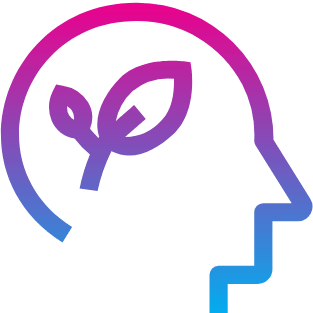Let’s face it, menopause can bring about a whirlwind of symptoms that can disrupt your life. But have you ever wondered why these symptoms occur in the first place? It all comes down to estrogen, the hormone that regulates your menstrual cycle and plays a crucial role in reproduction. As you age, estrogen levels decline, leading to the onset of menopause. But here’s the surprising twist: it’s not just your body that is affected by this decline, but your brain as well. Understanding how estrogen triggers these symptoms is key to managing them effectively. In this article, we’ll explore the impact of estrogen decline on menopause symptoms, particularly within the brain, and reveal why traditional treatments may not be as effective as you think. So, buckle up and get ready for a journey into the fascinating world of estrogen and menopause.

Understanding Estrogen Levels and Menopause
Estrogen, often referred to as the “female sex hormone,” is a hormone that plays a vital role in both men and women. In women, estrogen is responsible for regulating the menstrual cycle and is crucial for reproduction. As women approach menopause, which typically occurs around the age of 50, estrogen levels start to decline significantly. This decline in estrogen has a profound impact on a woman’s body and can lead to a variety of menopause symptoms.
Effects of Estrogen Decline on the Body
One of the most common symptoms experienced by women going through menopause is joint discomfort. This discomfort can greatly impact daily activities, making simple tasks such as lifting oneself from the couch feel impossible. Estrogen is essential for maintaining bone density, and the decline in estrogen levels can lead to weakened bones and joints. Maintaining bone density is crucial for overall mobility and quality of life.
In addition to its role in maintaining bone density, estrogen serves as the master conductor of the body’s hormonal functions. It orchestrates the production of other hormones, growth factors, and metabolic factors. Therefore, when estrogen levels decline after the age of 40, it can have a significant impact on various bodily functions.
Uncovering the Impact on the Brain
Researchers have discovered that the brain is the specific part of the body that experiences the most significant loss of estrogen. The brain acts as the center of hormonal regulation, and the decline in estrogen levels in the brain directly correlates with the onset of menopause symptoms. This explains why managing menopause symptoms requires addressing the reduction of estrogen in the brain.

Traditional Treatments and Their Limitations
Many women turn to traditional treatments to alleviate menopause symptoms. These treatments often include hormone replacement therapy (HRT) and medications. However, it is important to note that these treatments do not work for everyone. The reason for this is that the decline in estrogen levels is not the same for every woman, and as a result, a one-size-fits-all approach may not be effective. Personalized approaches that take into account individual hormonal imbalances are essential for optimal symptom relief.
Managing Estrogen Decline for Symptom Relief
Hormone replacement therapy (HRT) is a common approach to managing estrogen decline and relieving menopause symptoms. HRT involves replacing the declining levels of estrogen with synthetic or natural hormones. While HRT can be effective in reducing symptoms, it is important to consider the potential risks and benefits. Like any medical intervention, HRT carries certain risks, such as an increased risk of breast cancer and blood clots. Therefore, it is crucial to discuss the potential benefits and risks of HRT with a healthcare provider to make an informed decision.
There are also alternative treatments and lifestyle changes that can help address estrogen decline and manage menopause symptoms. These include herbal supplements, acupuncture, and lifestyle modifications such as regular exercise, stress reduction techniques, and maintaining a healthy diet. Each woman’s journey through menopause is unique, so finding the right combination of therapies and lifestyle changes may require some experimentation.
Preventing and Delaying Estrogen Decline
Early intervention and preventive measures can play a crucial role in maintaining estrogen levels and delaying the onset of menopause symptoms. Adopting healthy lifestyle habits such as regular exercise, maintaining a balanced diet, managing stress, and getting enough sleep can help support estrogen production. Engaging in regular physical activity has been shown to have a positive impact on estrogen levels and overall hormonal health.
The Role of Nutrition in Estrogen Balance
Dietary factors can also influence estrogen levels. Including foods that support estrogen production in a menopause-friendly diet can be beneficial. Foods such as soy, flaxseeds, fruits, vegetables, and whole grains are rich in phytoestrogens, which can help balance estrogen levels. Additionally, maintaining balanced nutrition is essential for overall hormonal health, which can help mitigate the effects of estrogen decline.
Coping with Menopause Symptoms
Menopause symptoms extend beyond physical discomfort and can have emotional and psychological effects as well. It is important for women to be aware of the potential impact on their mental health and seek support from healthcare professionals and support groups. These resources can provide guidance, coping strategies, and a reassuring environment for women navigating the challenges of menopause.
Impact of Estrogen Decline on Cognitive Function
Estrogen decline can also affect cognitive function during menopause. Many women experience memory lapses, difficulty concentrating, and other cognitive challenges. It is essential to understand the connection between estrogen decline and these cognitive changes. Maintaining cognitive health through activities such as brain exercises, regular mental stimulation, and a healthy lifestyle can help mitigate these symptoms.
Conclusion
The decline in estrogen levels during menopause has a significant impact on a woman’s body and overall well-being. Understanding the role of estrogen and its relationship to menopause symptoms is crucial in navigating this transitional phase of life. It is important for women to seek personalized approaches and professional advice to manage estrogen decline effectively. Empowering women with knowledge and choices can help them navigate menopause with confidence and grace.




